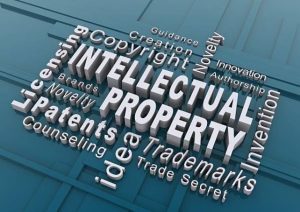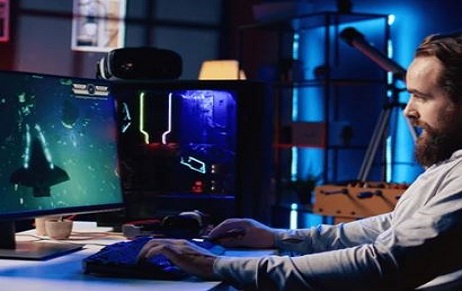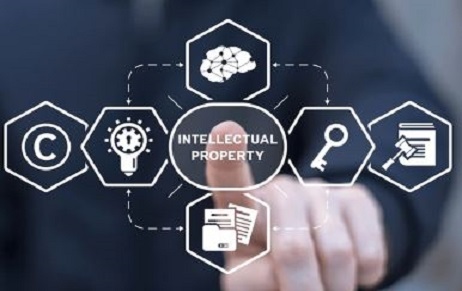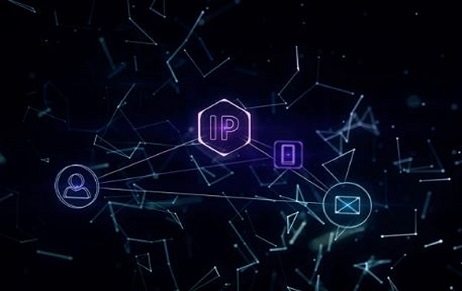Introduction The gaming industry has experienced exceptional growth in recent years, embracing as a crucial…
INTERNET AND COPYRIGHT
RIGHTS PROTECTED : Under this law Copyright law protects the copyright of authors, musicians, etc. Copyright is essentially a right to copy. Copyright is a term describing rights given to creators for their literary and artistic works. It’s an intellectual property, if an individual owns the copyright to something, then he’s the only owner of it and also the decider that who can copy it. Copyright doesn’t protect all forms of information from copying but it provides a useful bundle of rights that protects data on the Internet and electronic bulletin board systems. In most cases, the impact of loss on the internet is greater because the internet is borderless and infringing materials can travel across different geographical regions within a few seconds. Detecting infringements of property rights is a fairly complex task both in the online as well as offline world. Internet technology is developing faster than the laws that govern it. Laws that apply to the internet have been established either by legislation or the courts; copyright laws are among them. A standard myth about the Internet is that anything posted online can be copied or downloaded. Anything you see on the web has the potential of being protected by copyright just like anything you see in the library or bookstore.
[Image Source: Gettyimages]
Protecting Copyright within the E-WORLD
• Online property works in the form of music, literary work, and images are transformed into the binary language of 0 or 1’s. The electronic works are stored in bits and bytes and processed by computers. The human-readable content is converted into computer-readable language. The digital representation of the work could mean the reproduction of the work itself. In light of this fact, the Copyright Law has evolved when used or read in conjunction with computers and the internet.
• New Verities Of Hybrid IP Infringements aside from conventional infringements of intellectual property, pose a high challenge to the enforcement authorities. Despite technological measures and legal frameworks, combating copyright infringements continues to be a serious challenge in cyberspace.
• Definition Of use In It Age, the authors hold exclusive rights in their works for a particular term subject to the right to use work for fair use. After the term of protection expires, the copyrighted work is out there in the public domain and the rights of the author terminate. The definition of ‘fair use varies from jurisdiction to jurisdiction.
COPYRIGHT ISSUES ON THE INTERNET
• DOWNLOADING AND UPLOADING: Downloading involves producing a replica or reproduction of the file copied. It’s prudent to check if a website allows downloading the files or programs and any restrictions it places on its commercial use. Uploading means sending the knowledge from a personal computer/mobile device to another system as a server to remotely store a copy of the data. For instance, users upload their pictures on the server of Picasa or upload their videos on YouTube.
• CACHING: ‘Caching’ means a temporary copy generated by the RAM at the user’s end and ‘proxy caching’ occurs at the server’s end. The concept of caching falls under the exceptions of infringement of copyright as fair dealing. A client cache gets stored within the browser’s software of a client. It’s going to be of two kinds namely, persistent and non-persistent cache.
• MP3 REVOLUTION (DERIVATIVE WORKS) MP3 stands for MPEG audio layer 3. It’s a compressed audio file that becomes inferior if it is compressed beyond a particular point. There are many companies like Napster that allow Peer to see (P2P) file sharing of digital music which is copyright protected. Napster faced action for copyright infringement in cyberspace. The court considered the use exception for P2P file sharing and the liability of its service providers allowing such file sharing. From centralized distribution, the methods of file sharing of digital music have shifted to a decentralized approach through new technology like BitTorrent.
COPYRIGHT (AMENDMENT) ACT, 2012 : The Copyright (Amendment) Act, 2012 inserted Section 65A within the Copyright Act, 1957, wherein protection of technological measures has been provided. consistent with Section 65A, a person who circumvents an effective technological measure applied for the purpose of protecting rights conferred by the act with the intention of infringing such rights, he shall be punishable with imprisonment which will extend to two years, and liable for a fine. Section 65A (2) lists certain activities that form exceptions to Section 65A (1). Any act in Section 65A (1) that’s not expressly prohibited by the Copyright Act, 1957 provided an entire record of such person is maintained to identify him and the purpose for which he has been facilitated forms first exclusion in Section 65 (2)(a). Doing anything necessary to conduct encryption research using lawfully encrypted copy is permitted as an exception in Section 65A (2) (B). Conducting any lawful investigation is additionally permissible as per Section 65A (2) (c). Doing any act necessary for the aim of testing the security of a computer system or a computer network with the authorization of its owner is permitted as per section 65A (1) (D), or by the operator (section 65A (1) (E) or doing anything necessary to bypass technological measures intended for identification or surveillance of a user (Section 65A (1)(f)) or taking measures necessary in the interest of national security. Section 65B provides for the cover of rights management information. a person who knowingly removes or alters any rights management information without authority, or distributes, imports for distribution, broadcasts, or communicates to the general public, without authority, copies of any work or performance knowing that electronic rights management information has been removed or altered without authority shall be punishable with imprisonment which can extend to two years and also be liable to fine. The proviso to Section 65B of the Copyright Act, 1957, inserted by amendment, provides that an owner of copyright during a work whose rights management information has been tampered with may also avail civil remedies against persons infringing his rights.
CONCLUSION
On the internet, the protection of intellectual property has an important bearing on the growth of e-commerce. Intellectual Property Rights is a gamut of exclusive rights conferred by the state upon an individual or entity for an effort made by a person using his mind, skill, and judgment to create a tangible and intangible property that has a special value in society. Effective legal implementation is needed to combat IP infringements. Corporate entities should develop, monitor, and protect their Intellectual Property including registering their domain names bearing trademarks in order to avoid cybersquatting. Use of electronic evidence should be encouraged in order to combat IP infringements in cyberspace
Author: PRIYAASHI RAJ, in case of any queries please contact/write back to us via email to [email protected] or at IIPRD.



